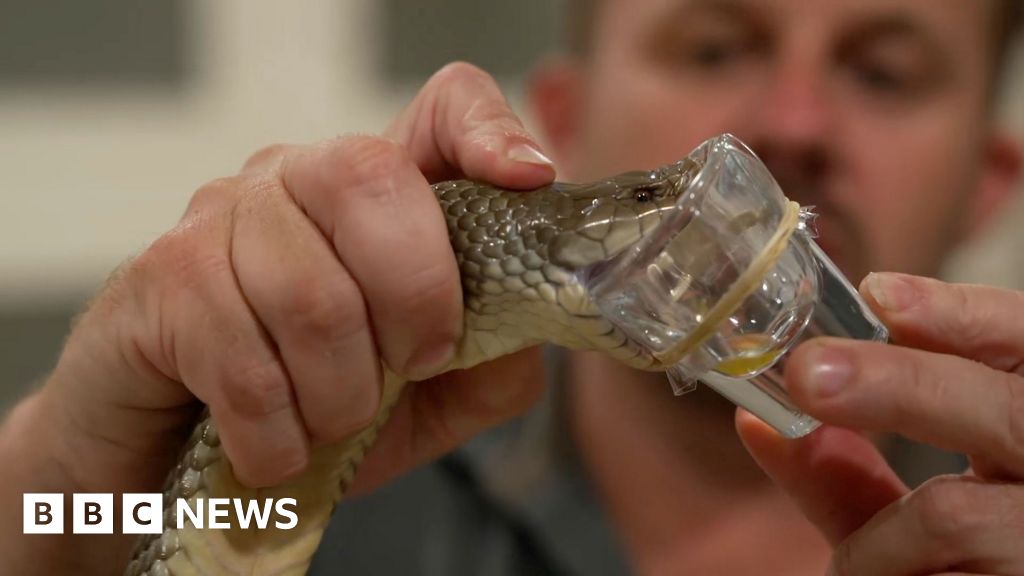ARTICLE AD BOX
By Matt McGrath
Environment correspondent
Image source, Nathan Stirk
The European Commission has outlined a new energy roadmap designed to cut reliance on Russian gas by two thirds in just a year.
The plan envisages ending reliance on all Russian fossil fuels "well before" 2030.
In the short term, gas should be sourced from the US and Africa while some countries may need to use more coal in the months ahead.
The EU also proposes a massive ramping up of renewables, biogas and hydrogen.
While carbon emissions may rise in the short term, the longer-term aim is a speedier transition to sustainable sources.
Russia's invasion of Ukraine has brought a new focus on Europe's reliance on the country for oil and gas.
The EU gets roughly 40% of its gas from Russia: According to figures from research group Transport & Environment, this dependence amounts to around $118m a day.
Image source, Getty Images
Image caption,Part of the Yamal pipeline that brings gas from Russia to Europe
But moving with a speed few thought possible, the EU has now laid out a strategy that could cut reliance on this fuel source by two thirds within a year.
The REPowerEU plan aims to make Europe independent of Russian fossil fuels by 2030, but the initial efforts focus solely on gas.
The roadmap essentially proposes finding alternative supplies of gas in the next few months and boosting energy efficiency while doubling down on greener sources of power in the medium to longer term.
"It's hard, bloody hard," said EU Commission vice president Frans Timmermans.
"But it's possible if we're willing to go further and faster than we've done before."
The Commission's new proposals will make it a legal requirement for EU countries to ensure they have a minimum level of gas storage.
The aim is to have gas stocks at 90% of capacity by the Autumn, up from around 30% now.
Discussions are ongoing with existing gas suppliers including Norway, Algeria and Azerbaijan to boost flows.
Image source, Sergei Krasnoukhov
Image caption,An LNG tanker sets off from Russia
Another key focus in the coming months will be increased imports of Liquefied Natural Gas (LNG) from suppliers including the US, Qatar and Australia.
But with Germany announcing plans for two new LNG terminals to increase supplies, some experts are worried that this could increase longer term dependency on fossil fuels.
"I think we're living in a tricky time, that there's so much political pressure to make these energy policy decisions," said Prof Paula Kivimaa from the Finnish Environment Institute and the University of Sussex.
"But we also must look beyond the next couple of years. If Germany builds new LNG infrastructure, there is a risk that it kind of locks it in for the foreseeable future."
As well as diversifying gas supplies, the Commission also believes the reliance on Russia will be eased as there are new renewable energy projects due to come online.
The EU says that countries should look to use the revenues raised from the Emissions Trading Scheme, which have almost doubled since 2020, to pay for these green energy sources.
But in the next few months, dirtier energy sources like coal may also be needed.
"There is some capacity from the power sector to generate more electricity with coal, and biofuels and there's also some new wind and solar products coming online," said Carol Torres Diaz, head of gas and power markets research at analysts, Rystad Energy.
Image source, Getty Images
Image caption,Rooftop solar power could meet a quarter of EU electricity needs
"So this could be a way of reducing some of the gas consumption as the power sector is the largest consumer of gas. This could be done within this year."
Frans Timmermans recognised that for some countries, it might make sense to switch to coal in the short term, but this could bring its own difficulties. Europe gets around 30% of its coal from Russia.
Alternative supplies from countries like South Africa and Columbia are not easily obtained.
Any switch to coal would also rapidly boost carbon emissions, a trend that's already well underway.
"We've already seen the emissions from coal increase last year, because of an increase of 18% in coal power generation," said Carlos Torres Diaz.
"So if this continues, during 2022, emissions will continue to rise, because coal power generation has more or less twice as much emissions as gas generation."
The Commission document also says that renewable energy projects must be fast tracked and says there is huge potential in domestic rooftop solar power.
Up to a quarter of the bloc's electricity consumption could be generated from panels on homes, farms and commercial building, the Commission says.
To reduce reliance on natural gas from whatever source, the Commission is also calling for a huge ramp up in biogas, which is made from agricultural and food waste.
With the extra investment in renewables, this could also lead to a significant increase in green hydrogen which can be made from wind and solar power.
The Commission is now calling for a quadrupling of hydrogen use by 2030.
"They would have gravitated towards green hydrogen over the next couple of decades, up to 2050, that sort of timescale," said Mike Foster, Chief Executive of the UK trade body Energy and Utilities Alliance.
Image source, Getty Images
Image caption,A German biogas plant which generates methane from animal and food waste
"Actually, this crisis has brought it to a head, and you're probably going to get decisions made in the 2020s to bring it all forward at least 10 years."
There may well be some dissenting voices when EU leaders meet in Versailles later this week. They will all recognise that all these proposed changes will not come cheap.
Campaigners say that Europe's governments must ensure the very poorest are protected.
"In parallel with introducing sanctions a huge package of support must be deployed to ensure that they do not deepen Europe's ongoing energy poverty crisis and that no one has to choose between heating and eating," said Mike Davis from Global Witness, who are calling for a full oil and gas embargo on Russia.
"The need for everyone to be able to afford to heat their home must come before worries about economic growth."
The Commission will be encouraging countries to use a toolbox of measures to protect consumers, including windfall taxes on the profits of energy companies.
But while the poorest may receive some protection, in the short term there will be added pain on the price front.
"I don't see a simple way for to shield the consumers from the costs that all of this transition will imply," said Carlos Torres Diaz from Rystad.
Follow Matt on Twitter @mattmcgrathbbc.

 3 years ago
93
3 years ago
93








 English (US) ·
English (US) ·